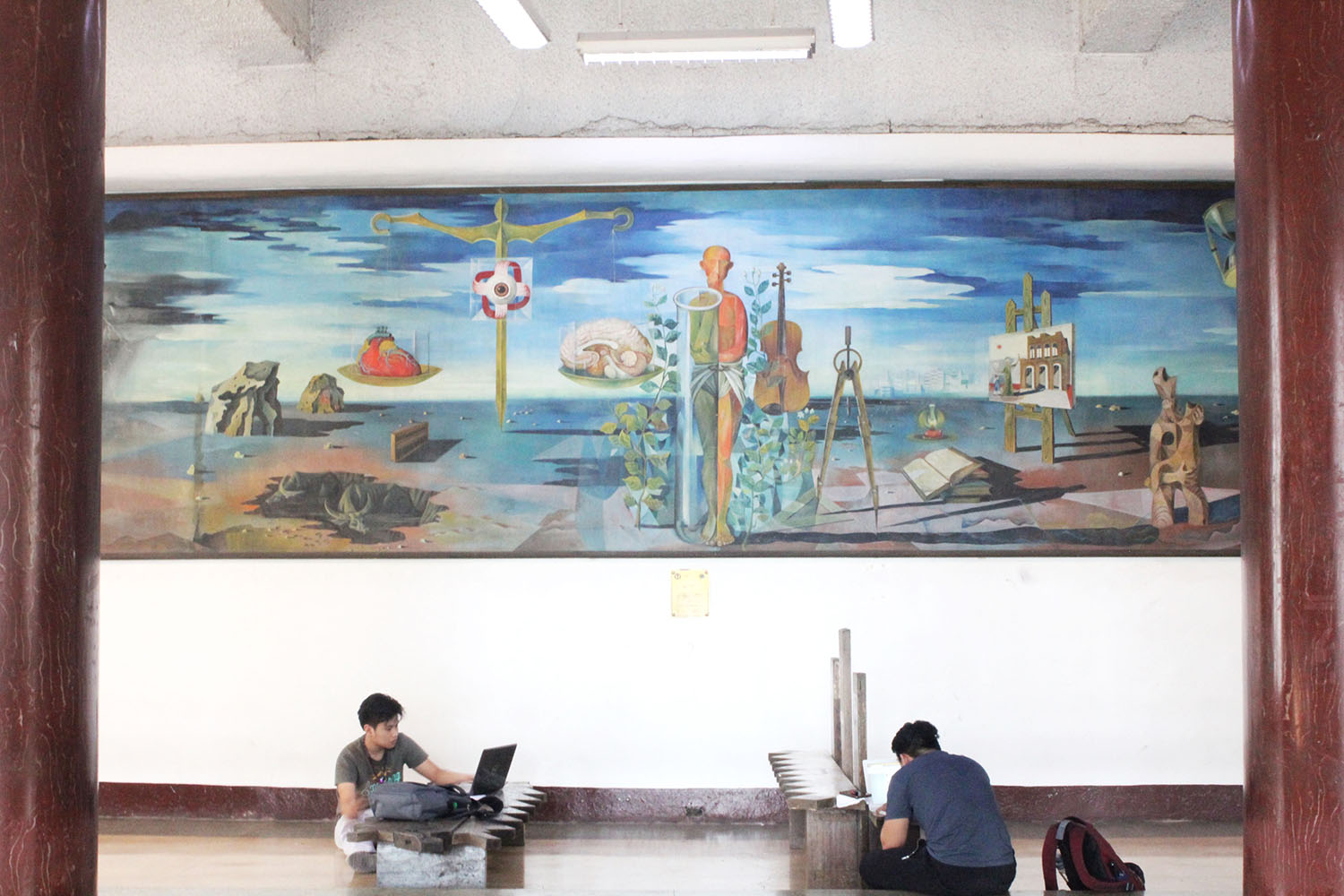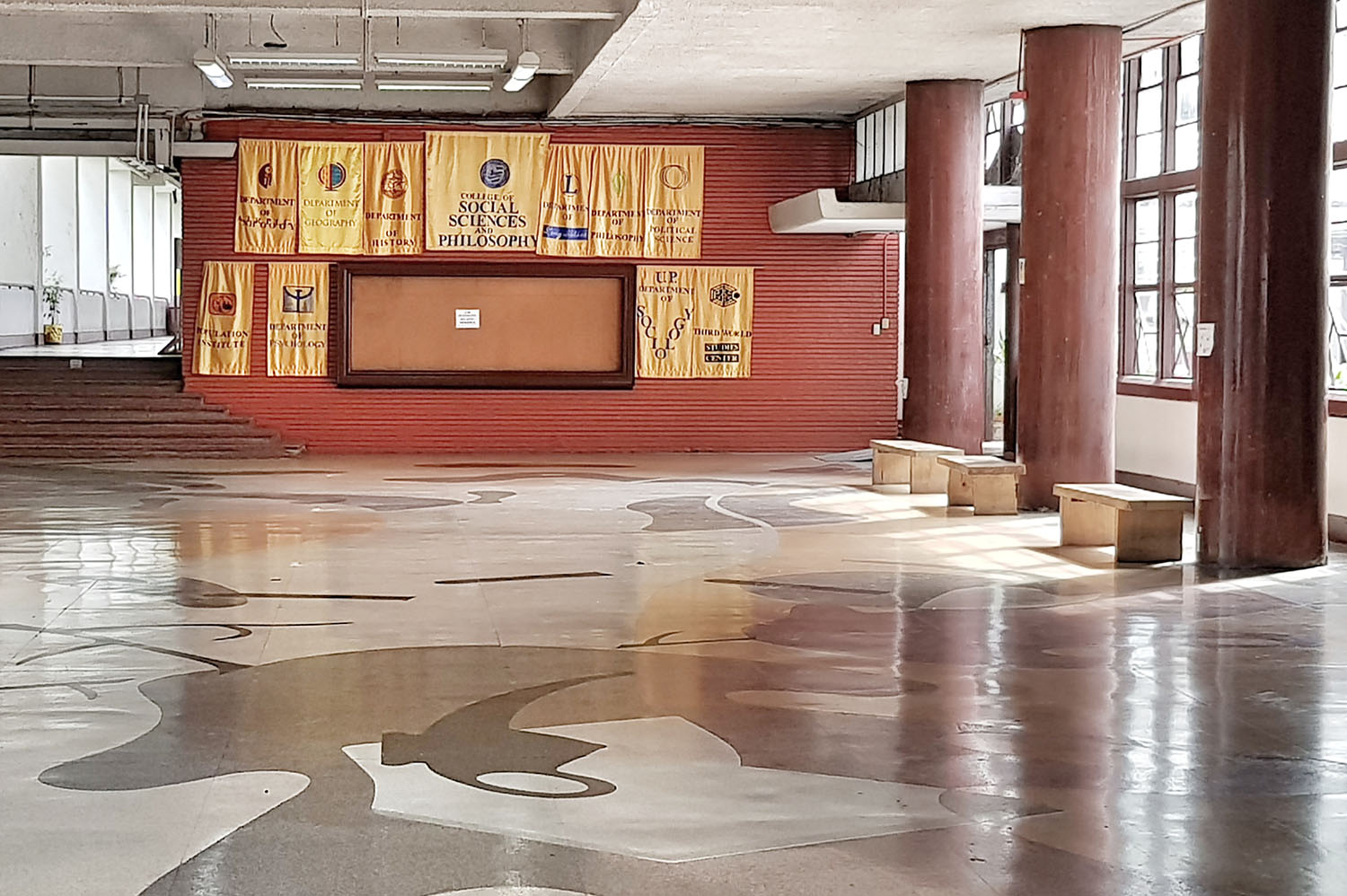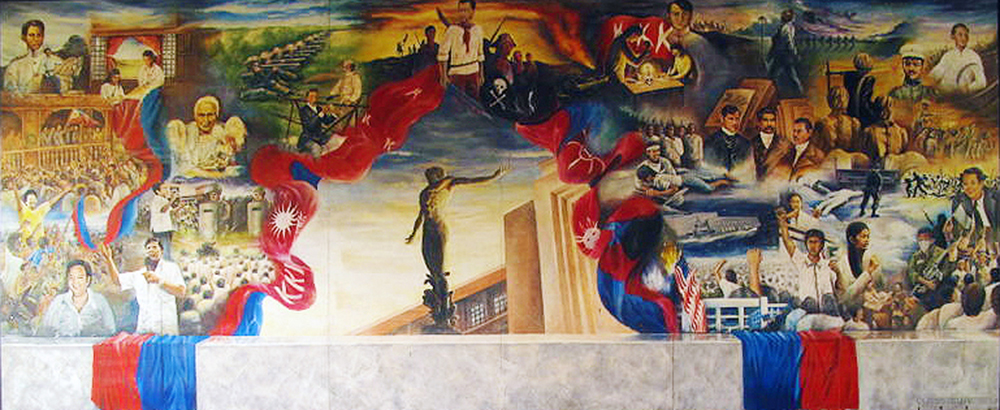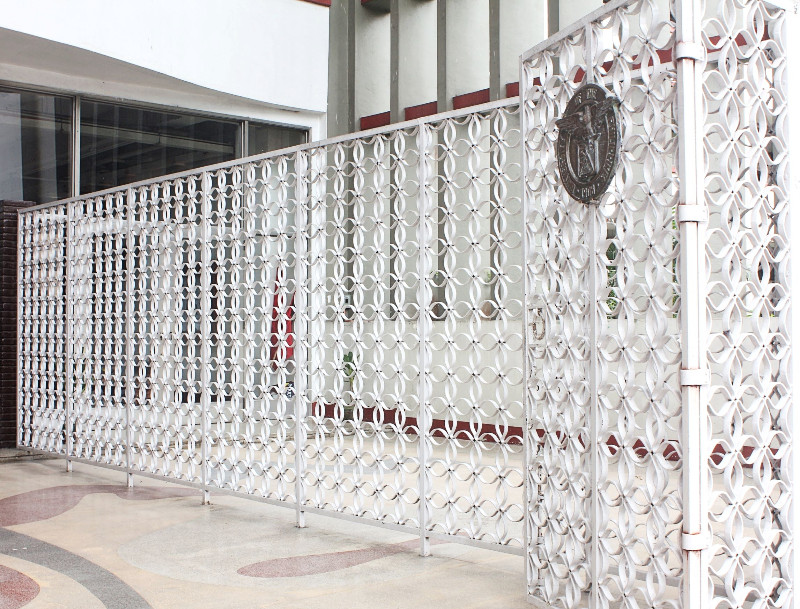The mural at the second floor lobby was made by the University of the Philippines Artists' Circle (UPAC) Fraternity in 1996. The project was headed by former UPAC head Jan Carmichael Calleja.
According to Calleja, the title of the mural is "Isandaang Taon sa Bukang-Liwayway", not "Mga Natatanging Pilipino" as stated in the marker at the second floor lobby.
The UPAC was commissioned by the College of Social Sciences and Philosophy (CSSP) through former CSSP dean Consuelo J. Paz, with the recommendation of then College of Fine Arts (CFA) dean Nestor Vinluan and CFA college secretary Reuben Defeo.
The UPAC willingly took on the huge project with the theme "What is UP in relation to society?", which anticipated the Philippine Centennial celebration in 1998. The organization submitted a watercolor study to the CSSP which the college then approved. For the project, the UPAC was given a budget of around P 70,000.
UPAC artists worked long hours on the mural and some even camped at the second floor lobby. It was finished in three months.
"Isandaang Taon sa Bukang-Liwayway"
Working on the theme "What is UP in relation to society?", UPAC decided to show UP as being "at the center" of significant revolutionary events in the country, although this is not meant to be taken literally as some events depicted in the mural happened before UP was founded.
In the mural, the Oblation (symbolizing "pahinungod") at sunrise ("bukang-liwayway") symbolizes enlightenment or "kamulatan" at the need of the country for revolutionary change, with UP playing a vital role. The artists also wanted to send the message that even as UP approaches its own centennial year (2008), it is waking up to a new epoch (the Oblation at dawn with arms outstretched mimics a person waking up at sunrise); there are infinite possibilities, as the history of Philippine revolutionary events has shown. The placement of Andres Bonifacio at the center of the mural reflects UP student activism.
The mural did not adopt a particular style however the artists specifically veered away from abstraction and non-representation, and instead employed figuration and representation.




